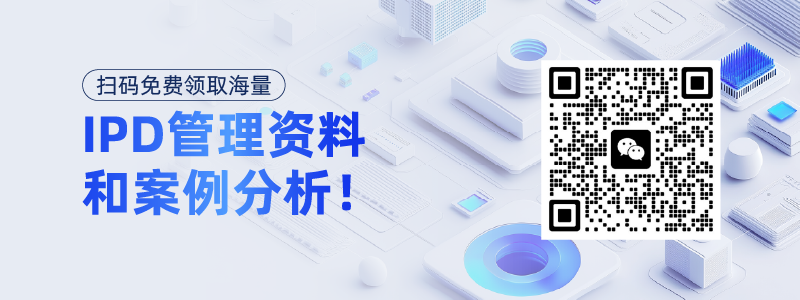ZenTao
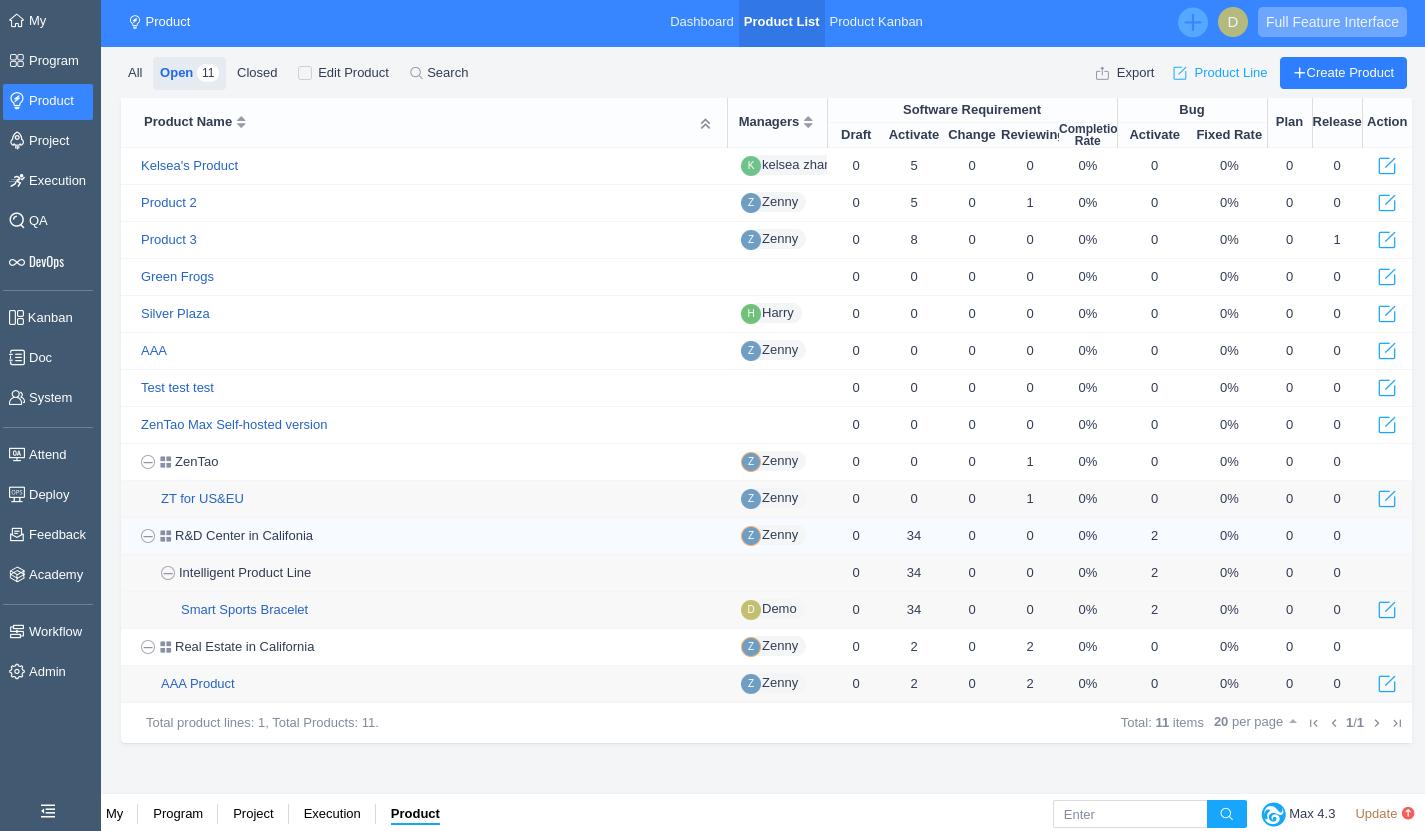
ZenTao is a comprehensive open source project management tool that has gained significant traction in the software development community. Originating from China, ZenTao has been localized to cater to a global audience, making it a versatile choice for teams across different regions. The tool is designed to support the entire software development lifecycle, from requirements management to testing and release.
One of the standout features of ZenTao is its integration with Agile methodologies, particularly Scrum. Teams can create sprints, manage backlogs, and track progress in real-time, ensuring that everyone is aligned with the project goals. ZenTao also offers robust bug tracking capabilities, which is crucial for maintaining the quality of software products. The tool's user interface is intuitive, making it easy for both technical and non-technical team members to navigate.
Another advantage of ZenTao is its extensibility. The tool is built on a modular architecture, allowing users to customize and extend its functionality as needed. This flexibility is particularly beneficial for teams with unique workflows or specific project requirements. Additionally, ZenTao is available in both open source and commercial versions, providing options for teams with varying budgets and needs.
Plutio
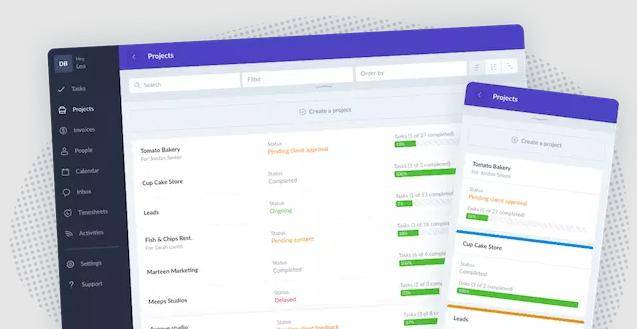
Plutio is a versatile project management tool that caters to freelancers, small businesses, and teams looking for an all-in-one solution. Unlike traditional project management software, Plutio combines project management, invoicing, and client communication into a single platform. This integration simplifies the workflow, reducing the need for multiple tools and improving overall efficiency.
One of the key features of Plutio is its focus on collaboration. The tool allows team members to share files, leave comments, and assign tasks directly within the platform. This seamless communication helps to eliminate miscommunications and ensures that everyone is on the same page. Plutio also offers a range of templates for different types of projects, making it easy to get started quickly.
Another notable aspect of Plutio is its user-friendly interface. The tool is designed with simplicity in mind, making it accessible to users with little to no technical expertise. Despite its simplicity, Plutio offers advanced features such as time tracking, budgeting, and reporting, which are essential for managing complex projects. The tool also integrates with popular third-party applications like Google Drive and Slack, further enhancing its functionality.
Filestage
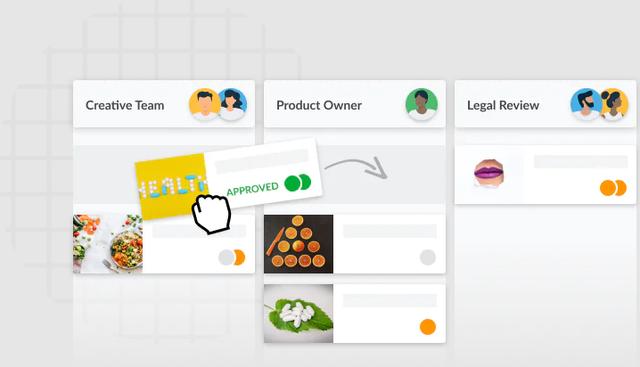
Filestage is a project management tool specifically designed for content creators and teams working in the media and entertainment industry. The tool focuses on streamlining the review and approval process, which is often a bottleneck in content production. Filestage allows team members to upload files, share feedback, and approve content directly within the platform, reducing the time and effort required to finalize projects.
One of the standout features of Filestage is its annotation tool. Users can leave detailed comments and markups on videos, images, and documents, providing clear and actionable feedback. This feature is particularly useful for teams working on visual content, as it eliminates the need for lengthy email threads and back-and-forth communication. Filestage also offers real-time notifications, ensuring that team members are always aware of the latest updates.
Another advantage of Filestage is its integration with other project management tools. The tool can be connected to platforms like Asana, Trello, and Slack, allowing teams to manage their content production workflow alongside other project tasks. This integration ensures that all aspects of a project are coordinated and tracked in a single ecosystem. Additionally, Filestage offers a range of analytics and reporting tools, providing insights into project progress and team performance.
Kantata
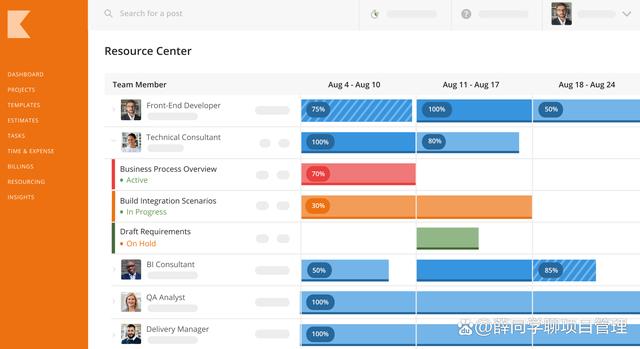
Kantata is a project management tool tailored specifically for professional services firms and consulting businesses. The tool focuses on resource management, time tracking, and billing, making it an ideal choice for organizations that rely heavily on billable hours. Kantata helps teams to optimize their resource allocation, ensuring that projects are staffed with the right people at the right time.
One of the key features of Kantata is its advanced resource management capabilities. The tool allows users to view resource availability, forecast demand, and allocate team members to projects based on their skills and availability. This feature is particularly useful for organizations with fluctuating workloads and tight deadlines. Kantata also offers real-time dashboards, providing a clear overview of project status and resource utilization.
Another notable aspect of Kantata is its billing and invoicing functionality. The tool integrates seamlessly with accounting systems, allowing teams to generate invoices and track payments directly within the platform. This integration simplifies the billing process, reducing the risk of errors and ensuring that clients are billed accurately and on time. Kantata also offers a range of reporting tools, providing insights into profitability, client performance, and team productivity.
Backlog
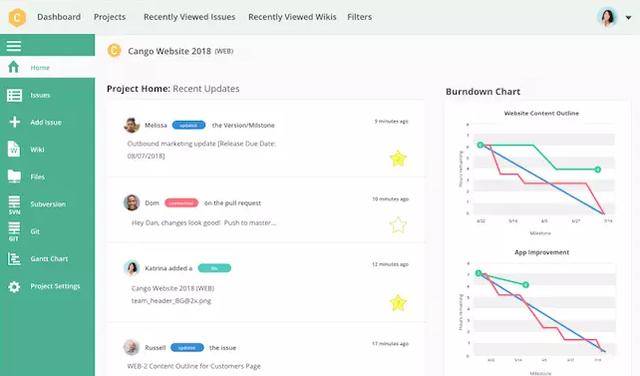
Backlog is a comprehensive project management tool that combines task management, bug tracking, and version control into a single platform. The tool is particularly popular among software development teams, as it supports Agile methodologies and integrates with popular version control systems like Git and Subversion. Backlog helps teams to manage their projects from start to finish, ensuring that all aspects of the development process are coordinated and tracked.
One of the standout features of Backlog is its bug tracking and issue management capabilities. The tool allows users to create and assign issues, track their progress, and resolve them within the platform. This feature is particularly useful for maintaining the quality of software products and ensuring that bugs are addressed promptly. Backlog also offers real-time collaboration tools, allowing team members to share files, leave comments, and discuss issues directly within the platform.
Another advantage of Backlog is its integration with third-party applications. The tool can be connected to platforms like Slack, Jira, and GitHub, allowing teams to manage their workflows and collaborate more effectively. Backlog also offers a range of reporting and analytics tools, providing insights into project progress, team performance, and issue resolution times. This data can be used to identify areas for improvement and optimize project management processes.
Scoro
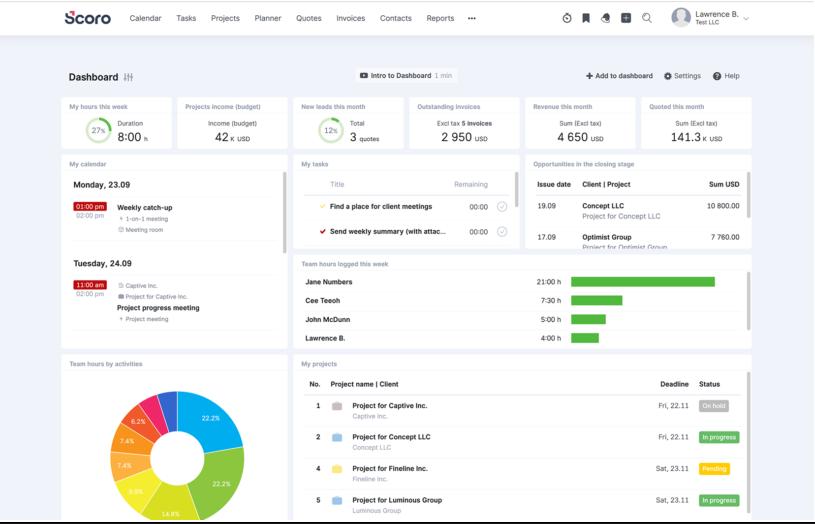
Scoro is an all-in-one project management tool designed for professional services firms and consulting businesses. The tool combines project management, billing, and client management into a single platform, providing a comprehensive solution for managing complex projects. Scoro helps teams to streamline their workflows, improve collaboration, and maintain transparency throughout the project lifecycle.
One of the key features of Scoro is its advanced project management capabilities. The tool allows users to create and manage projects, assign tasks, and track progress in real-time. Scoro also offers a range of templates for different types of projects, making it easy to get started quickly. The tool's user interface is intuitive, making it easy for both technical and non-technical team members to navigate.
Another notable aspect of Scoro is its billing and invoicing functionality. The tool integrates seamlessly with accounting systems, allowing teams to generate invoices and track payments directly within the platform. This integration simplifies the billing process, reducing the risk of errors and ensuring that clients are billed accurately and on time. Scoro also offers a range of reporting and analytics tools, providing insights into project profitability, client performance, and team productivity.
Monday
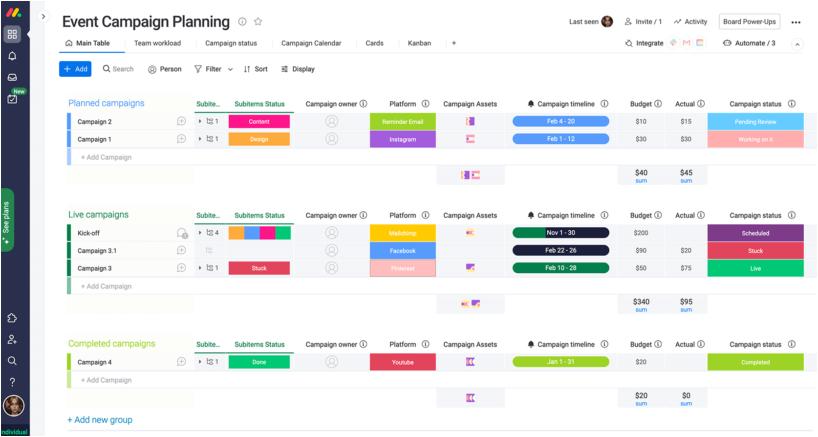
Monday is a highly customizable project management tool that caters to a wide range of industries and use cases. The tool is designed to be flexible, allowing teams to tailor their workflows to meet their specific needs. Monday offers a range of features, including task management, timeline tracking, and collaboration tools, making it a versatile choice for teams of all sizes.
One of the standout features of Monday is its visual interface. The tool uses a grid-based layout, allowing users to view their projects and tasks in a variety of formats, including boards, calendars, and Gantt charts. This visual approach makes it easy to track progress and identify potential bottlenecks. Monday also offers a range of templates for different types of projects, making it easy to get started quickly.
Another advantage of Monday is its integration with third-party applications. The tool can be connected to platforms like Google Drive, Slack, and Zoom, allowing teams to manage their workflows and collaborate more effectively. Monday also offers a range of automation features, allowing users to set up rules and triggers to streamline their workflows. This automation helps to reduce manual effort and improve overall efficiency.
nTask
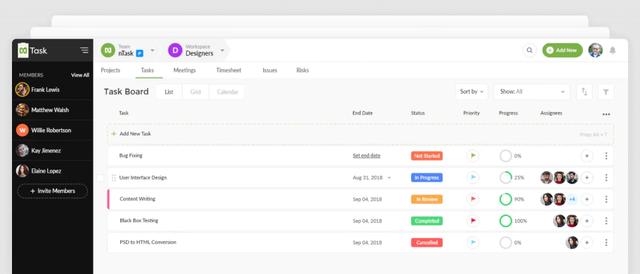
nTask is a project management tool that focuses on simplicity and ease of use. The tool is designed to help teams manage their projects, tasks, and meetings in a single platform. nTask offers a range of features, including task management, time tracking, and risk management, making it a comprehensive solution for teams looking to streamline their workflows.
One of the key features of nTask is its task management capabilities. The tool allows users to create and assign tasks, set deadlines, and track progress in real-time. nTask also offers a range of templates for different types of projects, making it easy to get started quickly. The tool's user interface is intuitive, making it easy for both technical and non-technical team members to navigate.
Another notable aspect of nTask is its risk management functionality. The tool allows users to identify, assess, and mitigate risks associated with their projects. This feature is particularly useful for teams working on complex projects, as it helps to minimize the impact of potential risks. nTask also offers a range of reporting and analytics tools, providing insights into project progress, team performance, and risk exposure.
Wrike
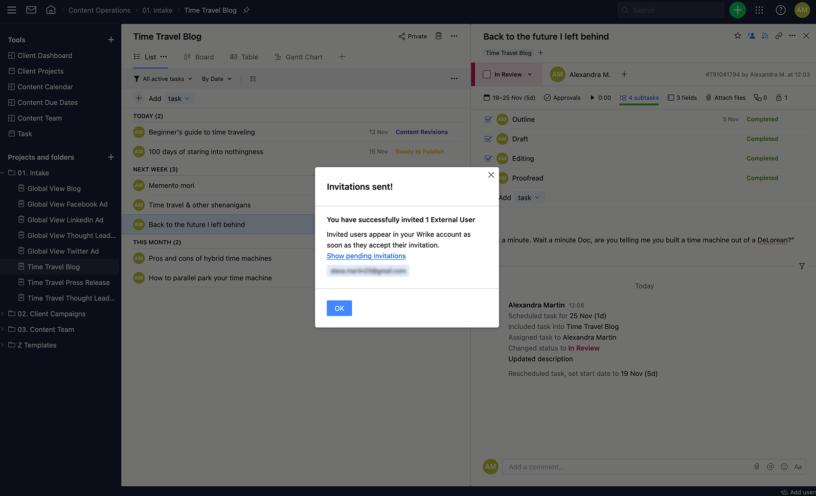
Wrike is a powerful project management tool that caters to teams of all sizes and industries. The tool offers a range of features, including task management, collaboration tools, and reporting, making it a comprehensive solution for managing complex projects. Wrike is designed to be flexible, allowing teams to tailor their workflows to meet their specific needs.
One of the standout features of Wrike is its advanced task management capabilities. The tool allows users to create and assign tasks, set deadlines, and track progress in real-time. Wrike also offers a range of templates for different types of projects, making it easy to get started quickly. The tool's user interface is intuitive, making it easy for both technical and non-technical team members to navigate.
Another advantage of Wrike is its integration with third-party applications. The tool can be connected to platforms like Google Drive, Slack, and Microsoft Teams, allowing teams to manage their workflows and collaborate more effectively. Wrike also offers a range of automation features, allowing users to set up rules and triggers to streamline their workflows. This automation helps to reduce manual effort and improve overall efficiency.
Freshdesk
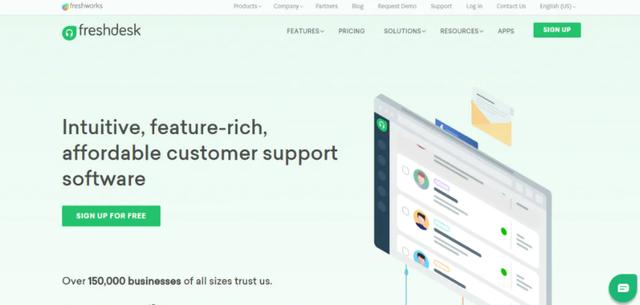
Freshdesk is a customer support and project management tool that combines ticket management, collaboration, and reporting into a single platform. The tool is designed to help teams manage their customer support operations while also providing project management capabilities. Freshdesk helps teams to streamline their workflows, improve collaboration, and maintain transparency throughout the project lifecycle.
One of the key features of Freshdesk is its ticket management capabilities. The tool allows users to create and assign tickets, track their progress, and resolve them within the platform. Freshdesk also offers a range of automation features, allowing users to set up rules and triggers to streamline their workflows. This automation helps to reduce manual effort and improve overall efficiency.
Another notable aspect of Freshdesk is its integration with third-party applications. The tool can be connected to platforms like Salesforce, Slack, and Zendesk, allowing teams to manage their workflows and collaborate more effectively. Freshdesk also offers a range of reporting and analytics tools, providing insights into ticket resolution times, team performance, and customer satisfaction. This data can be used to identify areas for improvement and optimize customer support processes.
Conclusion
Choosing the right open source project management software can have a significant impact on the success of your projects. Each of the tools discussed in this article offers unique features and capabilities, making them suitable for different types of teams and industries. Whether you're looking for a comprehensive solution like ZenTao or a specialized tool like Filestage, there is an open source project management software out there that can meet your needs.
When selecting a tool, it's important to consider your team's specific requirements, workflows, and budget. Take the time to evaluate each option, test its features, and gather feedback from your team. By doing so, you can make an informed decision and choose the tool that will help your team achieve its goals.
FAQ
1.What is the best open source project management software for small teams?
For small teams, ZenTao and nTask are excellent choices. Both tools offer comprehensive features, intuitive interfaces, and flexible pricing options, making them suitable for teams with limited budgets and resources.
2.Can open source project management software integrate with other tools?
Yes, many open source project management tools, such as Plutio, Backlog, and Wrike, offer integration with popular third-party applications like Google Drive, Slack, and Microsoft Teams. This integration allows teams to manage their workflows and collaborate more effectively.
3.Is open source project management software secure?
Open source project management software can be secure, but it depends on the specific tool and how it is implemented. Many open source tools offer robust security features and are regularly updated to address vulnerabilities. However, it's important to ensure that the software is properly configured and maintained to protect sensitive data.
ARTICLE TITLE :Recommendations for open source project management software: 10 selected tools ,AUTHOR :ITpmlib

